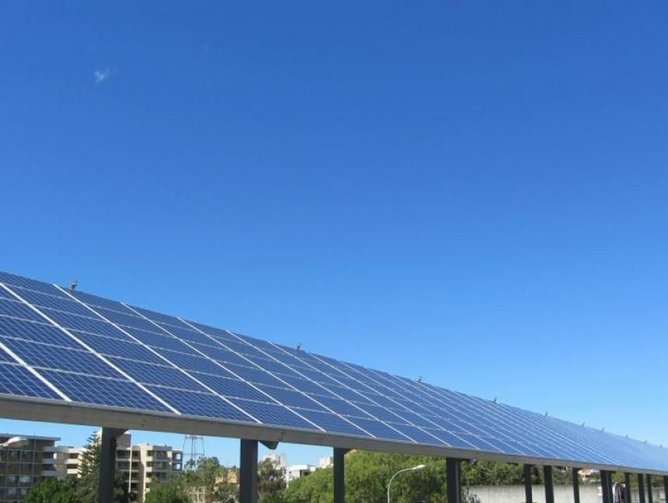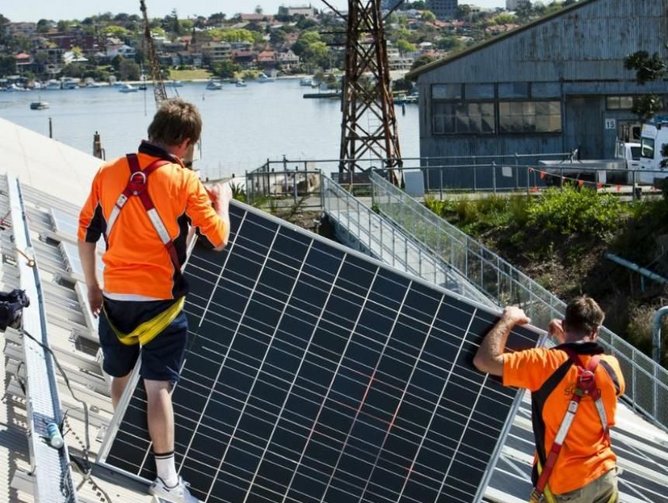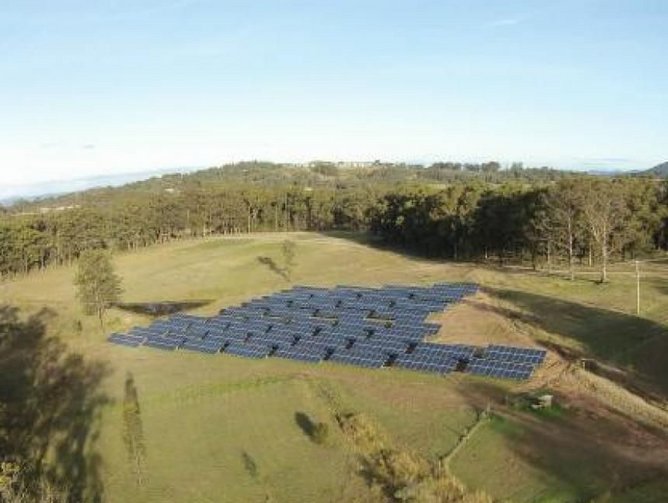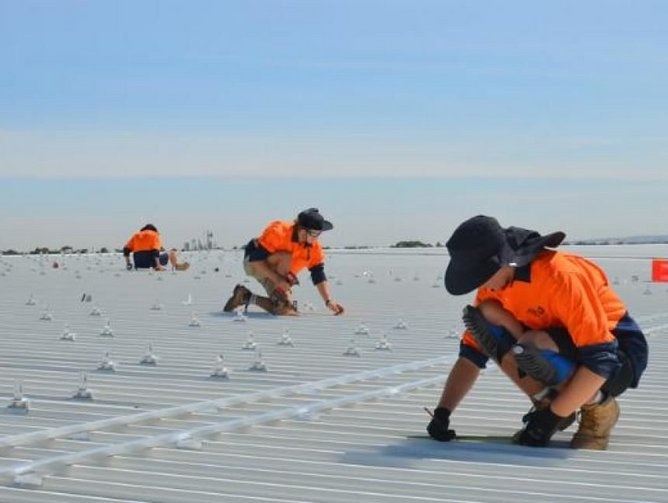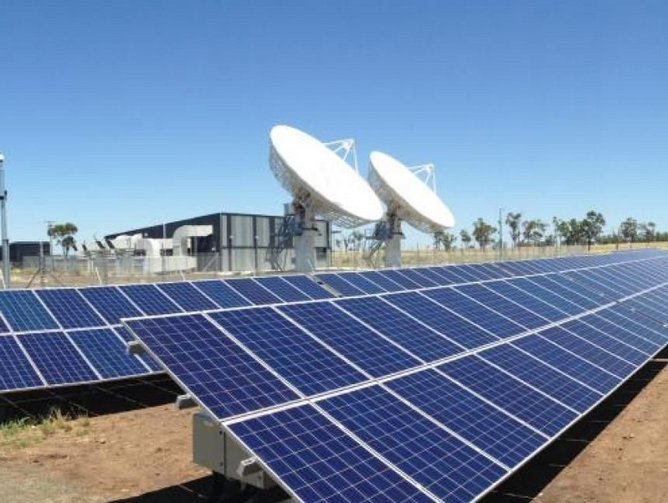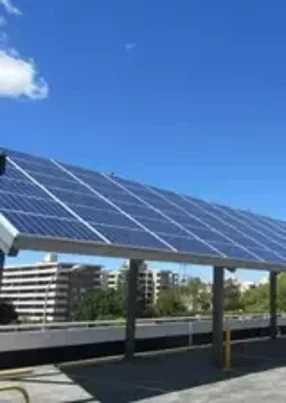When compared to more mature industries, solar is a relatively new sector. This means the amount of opportunity in renewable energy is almost unsurpassed – and the possibilities for the future are endless.
This was the line of thinking when rooftop solar installer Mark Group joined forces with commercial solar business Solgen Energy in late 2015. The merged company became Solgen Energy Group, in a strategic collaboration designed to capture the leading share of Australia’s booming solar market.
Today, advanced technology, engineering and people are at Solgen’s core, says CEO David Brown, who is steering the ship as the business aims to shape a new, participatory era in clean energy.
“The amount of new technology coming online and the pace at which they’re running is exciting, so it’s an extremely interesting time to be a part of this industry,” Brown says.
“We see massive opportunities to match renewable energy solutions with optimal financial packages for our customers and commercial clients.
Restructured around several new divisions, Solgen Energy Group can now offer solutions for a range of clients, including residential customers on a house-by-house basis, through to larger developments, commercial complexes and industrial businesses.
“Our new operating model has a dedicated business model to suit the SME space, given the huge opportunities there, along with a home division and commercial division, which is a comprehensive spread across all segments of the market,” Brown says.
“But our key point of differentiation has been introducing a dedicated new team, our ‘new ventures’ division. This allows us to dedicate resources solely towards developing and researching new technology, so we can stay on the leading edge of the changes that are coming into the industry.”
Sophisticated advancements in solar tech
In recent years we have witnessed incredible growth and change in the renewable energy sector, with solar in particular becoming a huge part of everyday life for an increasing number of Australians.
Indeed, Australia leads the world in household solar panel installations, with the Energy Supply Association of Australia reporting that around 15 per cent of Australian homes have solar panels.
“The Australian market overall is known for being very fast adapters of new technology. The uplift of solar in Australia has been incredible compared to the rest of the world and strongly supported by government subsidies and the like,” Brown says.
Further growth will be made possible through further advancements in technology around efficiencies and output that have been “quite amazing”, Brown says.
“I recently witnessed, first hand, many examples of the latest technological advances from around the globe at Intersolar in Munich. Manufacturers of panels, inverters and of course storage systems are investing heavily in improving functionality, capacity and efficiency and this will all result in better outcomes for our residential customers and commercial clients.”
“For example, we’re now using panels that have up to 25 years’ warranty and operate at 95% efficiency. The sorts of quality components that are coming through are really making solar a great proposition and the sophistication in technology is making it more affordable for a broader segment of the market,” he explains.
They’re also enabling operators like Solgen Energy Group to tailor solutions to businesses on a much larger scale.
“The benefit of having a group as broadly based as ours means we have a broad array of opportunities. For instance in the SME space we work with a lot of schools and many local councils across several States,” Brown says.
“We worked with the Redlands School, which is preschool to year 12, where we installed a 25KW system. At the time it was one of the largest installs in all Australian schools, so that will tell you how much times have changed in terms of the scale of projects now.”
Last year they also managed a major solar install for Tyrell’s Wines, which added a 350KW PV system to its site to generate almost 40 percent of the winery’s energy requirements.
“It was one of the first commercial solar installations under a Power Purchase Agreement in Australia and we’re very proud of it. New purchasing models for commercial solar are developing rapidly in the Australian market and we want to ensure we are at the forefront,” Brown says.
The NBN rollout provided another opportunity to demonstrate their expertise on large-scale projects, as Solgen successfully completed a contract to install 1.75kMW across many sites nationally.
Earlier this year, they also completed a large solar project at Adelaide Airport, installing just short of 1.2MW.
“It increased their solar power generation by 10 times and now every time you fly out of Adelaide Airport, you can see almost 4,500 panels glistening on the roof. Our bespoke design was quite leading edge for the industry and our guys did a fantastic job delivering that project.”
Solar storage: A new age in renewables
With plenty of projects both large and small behind them, Solgen are well aware of the next frontier to conquer in renewables, Brown confirms: energy storage.
At present, homeowners and businesses can harness the sun’s energy to power their immediate usage, but any energy they don’t immediately use is sent back to the grid, often for a nominal return.
Solar batteries, which offer the opportunity to capture and store unused energy for later use, are going to be the next game-changer in the industry, which is why Solgen are already trialling a number of products in this space.
“Storage is on everyone’s mind. We have a range of storage options that we’re trialing and testing. Some are batteries, but some are beyond that, and are focused more in relation to the way people manage their power,” Brown explains.
“The main thing that has slowed it down has been cost, but through our strong relationships with financing partners, for example our Classic Finance partnership servicing residential customers, we’re able to offer our customers a very real and solid solution in relation to being able to relieve the burden of a single capital outlay and still reap the financial benefits of solar.”
While there is a lot of activity in the solar storage space at present, Brown expects it will continue, “particularly over the next 12 months”.
“We’ve seen the introduction of the Tesla battery, which has been a very high profile entry in the market globally,” he adds. “We’ve started to put Tesla batteries on houses, which is very exciting.”
Their partnership with Tesla is one of many that is proving to be a mutual success, as Solgen has been successful in helping a number of key businesses across Australia in reaching impressive renewable energy targets.
For instance, they have a strong relationship with councils, including Gosford City Council and the City of Sydney.
At the latter, they have very ambitious energy targets of a 70% carbon reduction, and producing 25% of their energy needs from renewables, by 2030.
“We have a comprehensive relationship with them and we’ve installed solar solutions over 30 sites, including sporting grounds, community theatres and office blocks, to help them achieve these targets,” Brown says.
“There’s an array of projects like this that we’ve undertaken over the last couple of years that really display our broad range of engineering capabilities. But the great thing about the industry is that while the technology is extremely high tech, it’s getting better and better all the time. We’re leveraging our engineering expertise and our breadth across the country with a great team behind us to take an active role in the direction of the industry. As it matures, we intend to play our part –it’s definitely an exciting time to be in solar.”
